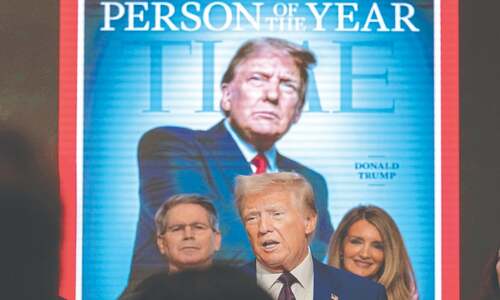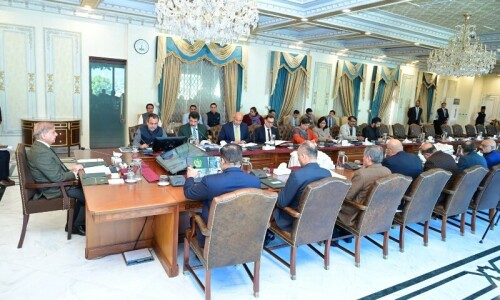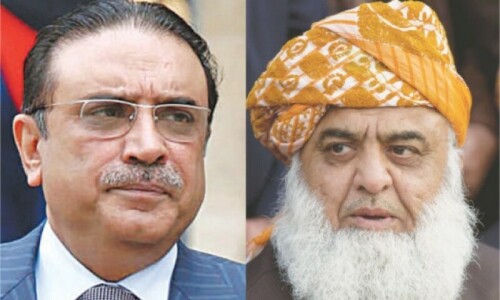NEW DELHI: On a recent four-month trek through hundreds of Kashmiri villages, separatist leader Yasin Malik called on people to adopt his new Gandhian philosophy of non-violence. Malik, a secular Muslim, soon became an icon of peace to many youths in this turbulent region.
But Malik's commitment to non-violence is now being tested amid a wave of unrest in occupied Kashmir. Over the past six weeks, tensions between Muslims and Hindus have left 34 people dead, most of them unarmed protesters shot by Indian security forces. Like many leaders here, Malik worries that Kashmir's freedom movement is once again on the verge of becoming an armed struggle.
"Such a show of violence is pushing Kashmiri people, especially our youth, toward revolution," Malik said in a telephone interview from his hospital bed after ending a hunger strike.
"At this point, I think the international community has to step in. Otherwise, we fear a growing extremism. This kind of anger comes at the worst time."
After four years of relative calm, the Muslim-led demonstrations in Srinagar were the biggest since a freedom movement against Indian rule nearly 20 years ago, analysts say.
Tens of thousands of people have died in the freedom movement, and thousands have been forced to leave their homes.
Rising hostility in Kashmir comes at a time of deteriorating relations between India and Pakistan.
"Pakistan has to put its political house in order before we can say what it means for Kashmir," said Bharart Bushan, editor of the Mail Today.
The current crisis in Kashmir began after the state government promised to lease forestland to a board that runs a Hindu shrine. The deal would have allowed tents and restrooms for Hindu pilgrims visiting the site. The board was set up after deaths of 200 Hindu pilgrims and mountain guides from cold and hunger in a blizzard in 1996. When Muslim protests erupted over the land deal, Malik offered the Hindu pilgrims blankets and rice. He instructed Muslim youths to treat the hundreds of thousands of pilgrims with respect, and most have.
Then, the Kashmir government revoked the land grant, enraging the Hindus, who launched their own protests by blockading roads to New Delhi, cutting off Kashmir's main trade route and crippling farmers during the height of the apple harvest. Malik went on his hunger strike, hoping to convince Hindu protesters and the Indian military to open the roads.
Tensions are also high in Jammu, the predominantly Hindu region of the Indian state of Jammu and Kashmir. Three Hindu protesters died after protests in Jammu, and two leaders have committed suicide, saying they were saddened by the local government's reversal.
Malik has led several peaceful protests, but many young Kashmiris now say they are ready to fight.
Malik is a controversial figure. He was at the forefront of militancy in 1989 and was imprisoned by the Indian government in 2002 for allegedly smuggling money to finance freedom fighters in Kashmir. But he was released after eight months. He has also been accused of atrocities against Kashmiri Hindus. In 1990, he renounced violence and has since started his peace movement.
Some here worry that his peaceful solutions will soon have little relevance.
"We hate the sight of these security forces," said Rizwan, 15, a student in Srinagar who declined to give his last name for fear of retaliation by Indian authorities.
"We are Kashmiris, not Indians. Earlier, my mother used to tell me not to join protests, but yesterday even my mother was in the protest with me."
The focus has shifted dramatically from the shrine to a larger national debate over Kashmir's status. Columnists in mainstream English-language newspapers published out of New Delhi on Sunday acknowledged the Kashmir independence issue, with one calling for a vote on Kashmiri independence -- once a rare statement. Some analysts say live television images of the unrest, police actions and anti-India sentiment in Kashmir were beginning to impact public opinion. There was no such coverage during the freedom movement in the early 1990s.
Until recently, the federal government has offered little leadership on the issue. Analysts say such involvement could have calmed the situation. But on Friday, Prime Minister Manmohan Singh called for an end to the protests and violence in Kashmir.
"In this hour of crisis, divisive politics will lead us nowhere," he said, speaking from New Delhi.
"It is my conviction that all issues can be resolved only through dialogue and peaceful means."
India’s Independence Day celebrations this year included parades, kite-flying contests, family picnics and flag-waving crowds, but Kashmiris spent the weekend waving black flags, unfurling green Pakistani flags and calling for "a national day of mourning."—Dawn/LAT-WP News Service (c) Washington Post














































Dear visitor, the comments section is undergoing an overhaul and will return soon.